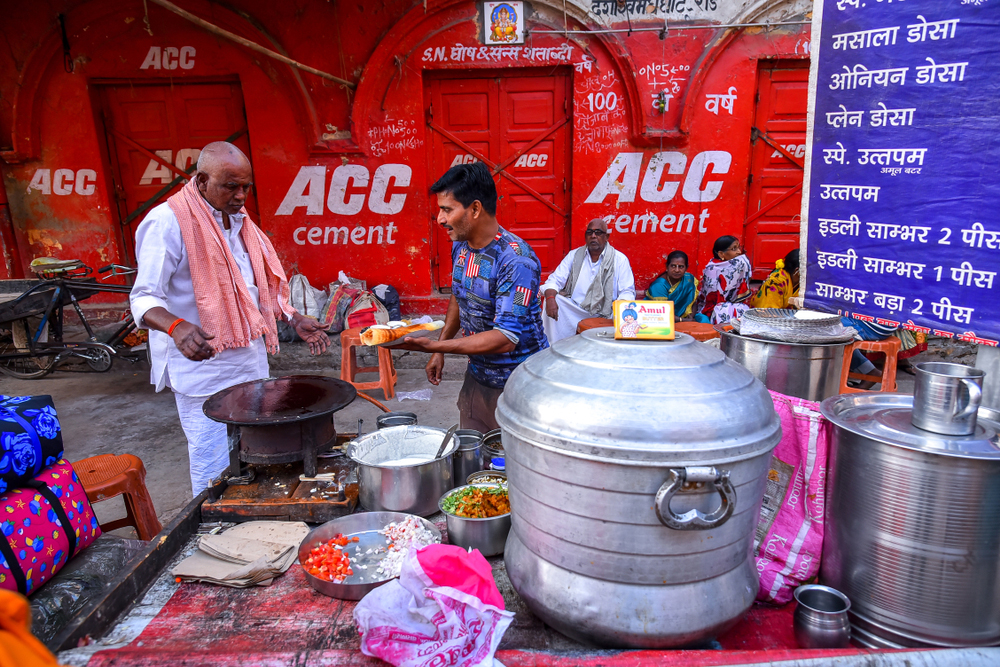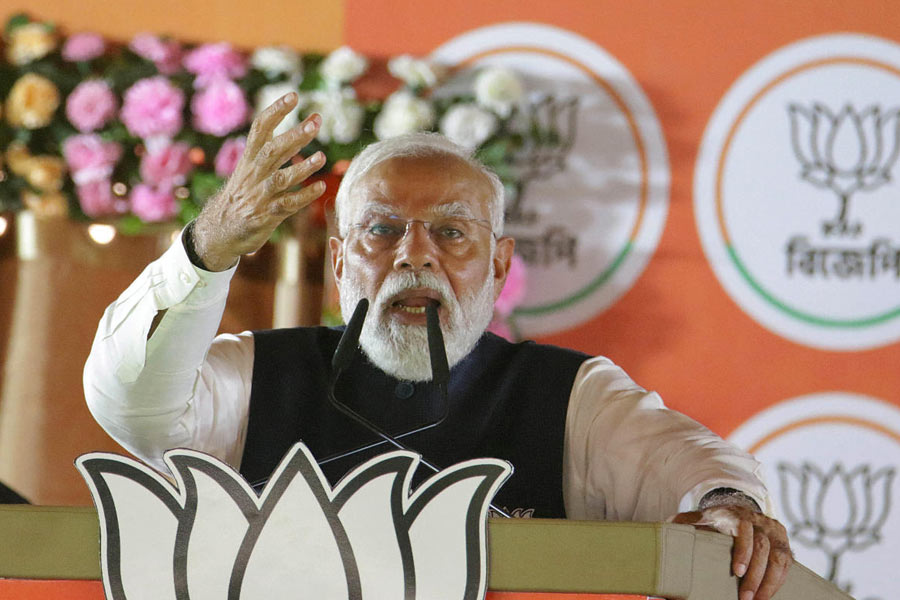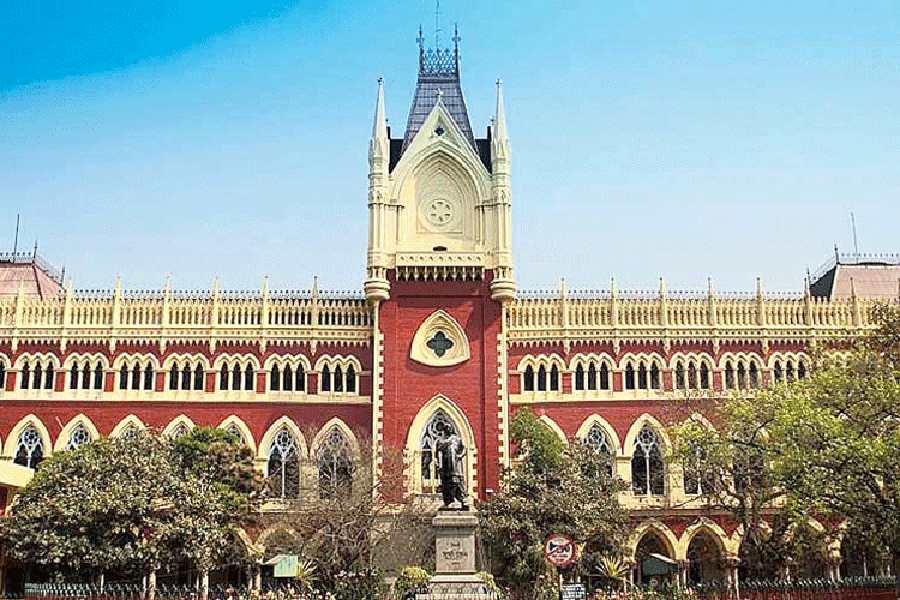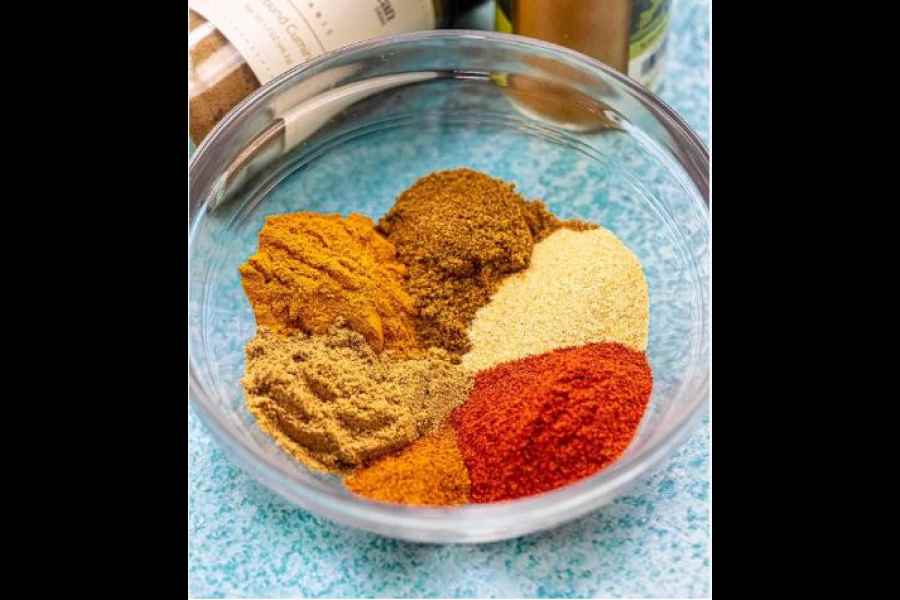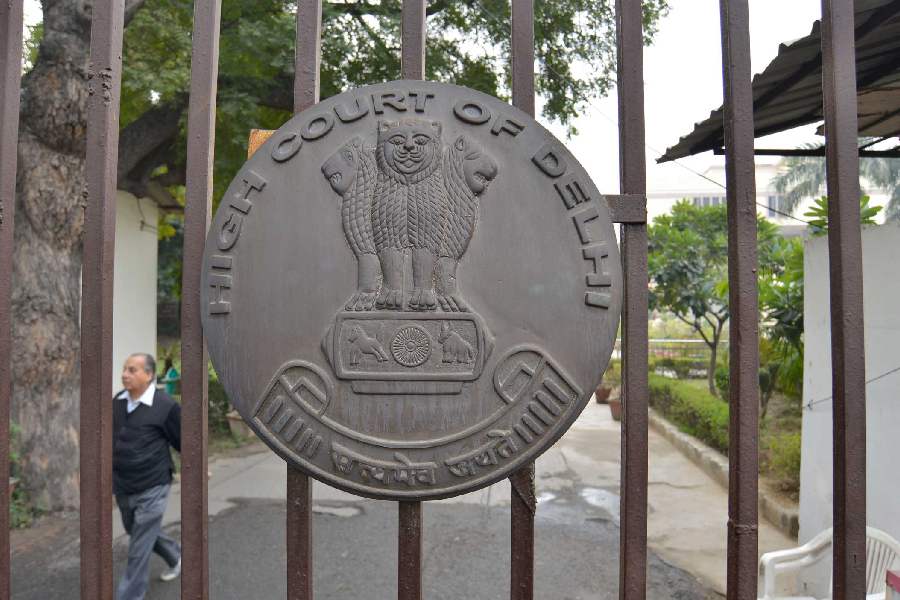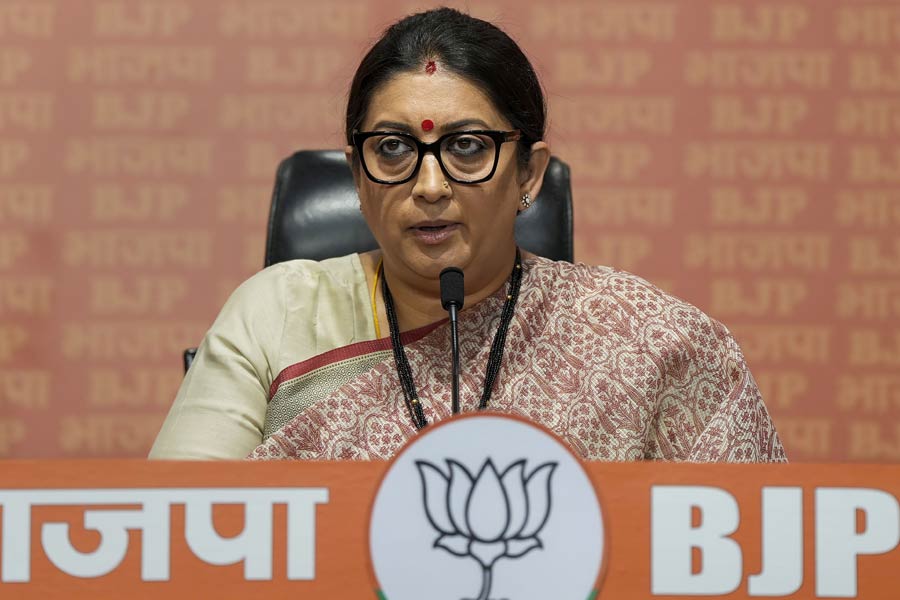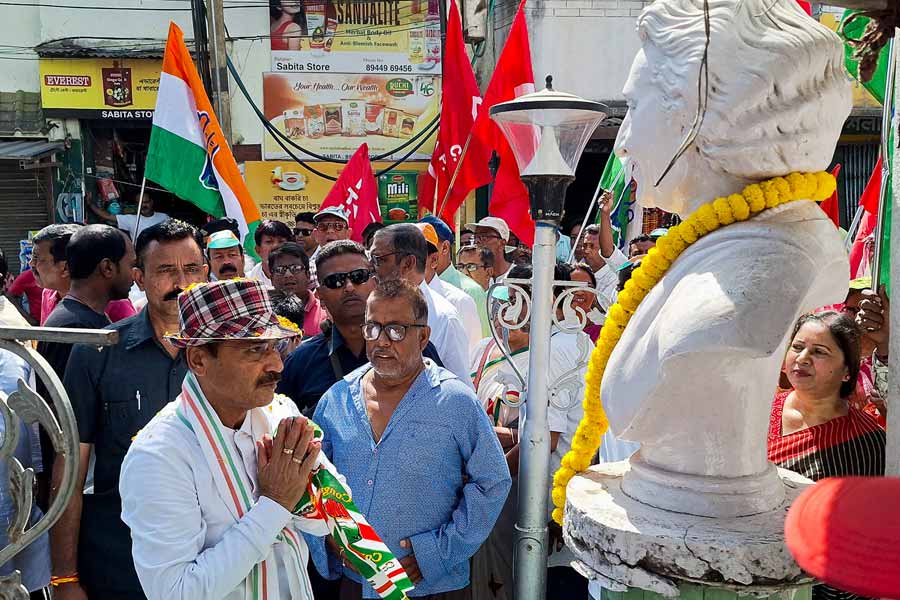Sir — We are what we eat. With India’s burden of non-communicable diseases growing heavier with time, the Food Safety and Standards Authority of India has launched the ‘Eat Right India’ movement. This movement is supposed to increase cooperation among agriculture and the rural economy, industry and commerce, public health and environment. The first order of business should be to diversify the produce distributed through the public distribution system. Excessive dependence on carbohydrate-rich cereals is one of the causes for increasing obesity and other related ailments.
Roshni Sen
Calcutta
Made at home
Sir — The prime minister has called upon people to buy local products for the sake of the country’s prosperity. This appeal assumes special significance in the midst of the economic slowdown. To this end, the government has decided to restrict imports of some 370 items which have been identified as “non-essential”. Such protectionism is on the rise in many parts of the world.
But the government’s plan is unlikely to work in the long run. Indians these days, especially the youth, prefer to shop online, where they get merchandise at competitively low prices. This is also more convenient as the products are delivered to the doorstep. In order to promote indigenous products, the quality of these items needs to be improved and more innovative ways of selling them should be devised.
Khokan Das
Calcutta
Sir — It is heartening that the government is trying to promote indigenous products. But the primary problem as far as buying swadeshi items such as handloom is concerned is that these are way too expensive to afford on a regular basis. Instead of simply placing an embargo on foreign products, the government should focus on promoting Indian artisans by bringing them under the social security net. More people should be encouraged with fiscal incentives to take up crafts and trades that are unique to India. Owing to the lack of proper markets and the poor income, most youth do not learn such crafts and opt to migrate to cities in search of jobs. This adds to the burden of unemployment. Buying swadeshi is not possible without producing swadeshi in bulk.
R. Motwani
Calcutta
Old burden
Sir — An age-old practice that has been allowed to flourish at otherwise modernized railway stations like those of Howrah and Sealdah is the carrying of large packages by porters either on their heads or on carts piled up high. Such a primitive means of getting the luggage to trains is dangerous, not just for the people carrying the load but also for others around them. It is possible that many a minor accident caused by this practice has not been reported. But it is only a matter of time before something serious happens. Surely the railway authorities will agree that in this age of mechanization, this is not the way to handle large parcels and luggage.
Motorized overhead cages and trolley systems for the transportation of such loads along the platforms should be installed at once. Porters can then be employed to load and unload these trolleys, and then to put the items into the respective railway carriages. Passengers, too, should not be allowed to carry packages on their heads. Hand trolleys and carts like the ones available at airports should be made available at railway stations.
Kunal Kanti Konar
Calcutta
Sir — Indian Railways was supposed to construct separate pathways for the trolleys used by coolies after a proposal for the same was approved last year. This would have undoubtedly made navigating railway platforms much easier. But almost a year has passed since then and railway stations remain as chaotic as ever with passengers, coolies, animals and luggage jostling for space.
Rima Roy
Calcutta

